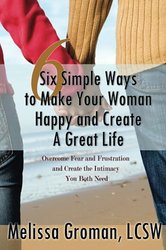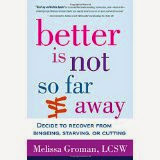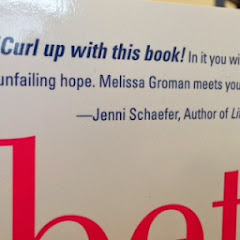
Consider this: Jane and Jon have been married for three years. They generally enjoy each other's company and companionship and get along well. They are hard working, saving for a house, and maybe kids one day. She likes to take day trips to see interesting things on the weekends. He prefers to chill around the house. Maybe mow the lawn and play some ball with the guys. They work it out. Overall, things are fine. But its just that something subtle is brewing. Its sort of like a small hum. Their sex life is pretty good still. It has slowed down a little bit over the last year or so, but no worries, really.
Jon is a mellow guy. He doesn't talk too much, a sharp contrast to Jane's pretty constant chatter. In fact, sometimes, its not chatter, its more of a running commentary on her work, her family, her friends, her die hard belief in protecting animals. Jon actually likes Jane's banter most of the time. He found her interesting at first, and since he does not have a lot to say, he does not mind it that she fills the silence. And Jane does not seem to mind that Jon is a guy of few words, and fewer still, analyses of life and relationships.
Fast forward six years, one kid and one on the way. A slower than slow sex life now and that small hum has turned into an annoying buzz. Neither can put their finger on what it is, but they both hear it. Jane wonders what it is that wrong. She wants Jon to say more, talk more, emote more. She wants an emotional connection. Jon still listens to Jane's banter, but more and more he feels like he cannot say anything real to her because 1) her first response is usually negative and 2) she will argue him under the table if she does not like what he says.
Jon, who never really was big on conversation, feels both defeated and frightened. He loves Jane, and he enjoys her. And he would actually talk more to her about his own feelings and ideas if he felt safer, if he did not think she would immediately disagree, or present the opposite side of the issue. Or worse, yet, leave him. He somehow knows he fears this, deep down. And he is afraid to hurt her. He loves her. And he is grateful to her for being such a good mother and bearing his children.
So one day, when Jane tells Jon that she is not happy in the marriage and wishes Jon would open up more (a phrase that ranks high on a man's most annoying statements list), Jon, with great struggle, decides that he is going to brave it and tell Jane a truth about herself.
"Jane," he begins, "I find it hard to open up to you because you always seem to argue with what I say, or your first response is negative...." (Jon is looking at her tentatively and with hope and fear, and, surprisingly to him, eyes full of tears and an ache in his throat)...and here is what comes next:
Scenario 1: Jane (feeling resentful and angry, hurt and defensive, automatically sprays like a skunk, "Yes, but you never really listen to me, you have no idea what I need or want and you don't understand or have anything real to say. You would rather watch TV than listen to me, you never initiate anything except sex, and I hate how you do that. "
Okay....so you can imagine where this is going. And just to let the therapist in me mention that yes, and okay, we could, unpack here, all the reasons why Jane is Jane and Jon is Jon, and all their ideas about marriage, character and communication, but that's a therapy session or book, not a blog post, so I will leave it for now....
Scenario 2: Jon says the same thing...and Jane says: nothing. for a whole minute. She still feels hurt and angry and defensive, but she stays quiet. And then she says: Thank you for telling me. That couldn't have been easy. I did not know I come across this way to you.
And then Jon says. "I don't want us to grow apart. I like us. I love you."
Its not always so simple...but you get the drift. The Yes But You disease can be a relationship killer. It kills friendships, marriages, business partnerships. The good news is, its highly curable. With a bit of work and an open mind.
People offer suffer an enormous amount of emotional pain when trying to be understood by someone who has hurt them. Or trying to work out a difficult relationship. Its hard to own up to your own stuff, or to learn about how your partner experiences you, especially when you are pretty clear about what they do wrong. And especially when you are hurting, or have a tendency to be very hard on yourself, and not allow for human mistakes without going into self pity and despair (next post on this).
But when someone is brave enough to tell you what is in the way of the relationship being successful, you have to be brave enough to listen. You may not agree, but its always a good idea to try to hear what they are telling you before you spray. It may redirect you future, and leave you so much better off than you could ever imagine.











